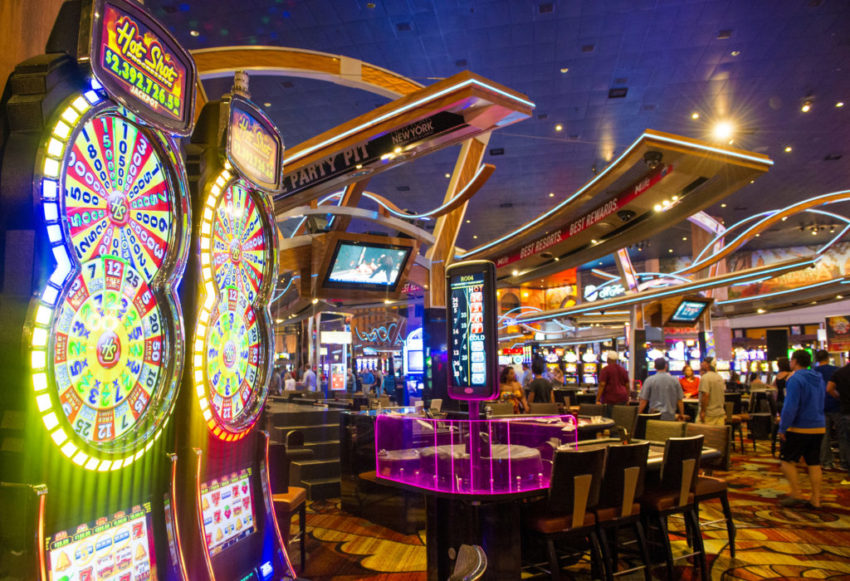
In the vibrant world of casinos, where the air humms with excitement and the clattering of tokens fills the space, the role of a dealer is both crucial and captivating. Daily, these skilled experts step into a world where fortune and strategy intertwine, leading players through the ups and downs of their selected casino titles. From table games like 21 and poker to the spinning wheels of roulette, dealers manage the gameplay while ensuring that each game runs smoothly and honestly.
As the sun rises on another bustling day, a casino dealer prepares to dive in this dynamic setting. Their responsibilities extend beyond merely dealing the cards or turning a wheel; they are also performers, customer service representatives, and guardians of the game regulations. Each shift brings new challenges and experiences, making every day unique in the life of a dealer. This insider look will explore the day-to-day operations of a casino game dealer, showcasing the skills and experiences that make this career both exciting and rewarding.
The Role of a Casino Table Croupier
A gambling table dealer is at the heart of the gaming experience, managing the progress of the game while ensuring that players are engaged and entertained. Their main duty is to oversee the table, which involves distributing cards, spinning the wheel, or handling the chips, depending on the type of game being played. Dealers must have a thorough understanding of the regulations and regulations governing each type of game, while also upholding a friendly and welcoming demeanor to improve the gaming atmosphere.
In addition to managing the play, croupiers must also keep a close watch on the players and the surroundings around the table. This entails monitoring for any indications of cheating, making sure that everyone is following the rules, and addressing any conflicts that may arise among players. Strong communication skills are vital, as dealers often give explanations about the game’s mechanics and offer assistance to those who may be new to casino games.
Furthermore, a dealer’s role extends past just the mechanical aspects of the play. They play a crucial part in crafting an enjoyable experience for the players. This requires establishing a connection with patrons, being sensitive to their needs, and often adding an element of entertainment into the game. It’s this mix of talent, vigilance, and interpersonal relationship that makes the role of a gambling game dealer both demanding and rewarding in the vibrant world of casino games.
Daily Responsibilities and Challenges
One of the primary responsibilities of a dealer in a casino is to supervise the multiple games provided at their table, ensuring a smooth and pleasant experience for players. Dealers must be skilled at dealing cards, counting chips, and maintaining the continuity of the game. This necessitates a keen understanding of the regulations of each game, from blackjack to roulette, and the ability to address players’ questions while maintaining the game moving. Attention to detail is essential, as dealers must monitor bets, pay out winnings correctly, and watch for any cheating or discrepancies at the table.
In addition to managing the game per se, dealers encounter challenges such as dealing with difficult players. The casino environment can be stressful, particularly during high-stakes games, and a dealer must remain calm and professional at all times. They need robust interpersonal skills to handle interactions with players who may be upset about losses or dissatisfied with the game’s pace. Navigating these situations delicately is essential in ensuring a positive atmosphere on the casino floor.
Another major responsibility is upholding the honesty of the game. https://bandkpower.com/ Dealers must be vigilant and attentive, watching for any signs of player cooperation or cheating among players. This entails not only a strong knowledge of the games but also an awareness of human behavior. They must also adhere to the casino’s regulations and procedures, participating in regular training sessions to keep updated on rules and protocols. Balancing these responsibilities while providing top-notch customer service is what makes the role both challenging and fulfilling for a dealer in a casino.
Skills and Qualities for Achievement
A effective casino game dealer must have outstanding communication skills. This includes merely the ability to clearly explain game rules and procedures to players but also the capacity to engage with them in a cordial and respectful manner. Fostering rapport with guests can enhance the gaming experience and promote repeat visits to the casino. Effective communication enables dealers to manage tables smoothly while ensuring that players feel appreciated.
Moreover, robust mathematical skills are essential for a dealer. Quick arithmetic are often required to follow bets, payouts, and game outcomes in real-time. A dealer’s ability to perform these numerical tasks accurately and swiftly contributes to the overall efficiency of the game. This skill helps in maintaining the flow of play and in minimizing disputes or misunderstandings with players, which is crucial in a rapid casino environment.
Lastly, an ideal casino game dealer should show integrity and professionalism at all times. Trust is a vital component of the gaming experience, and players must feel assured that the games are conducted fairly and clearly. A dealer’s dedication to upholding high ethical standards fosters a positive atmosphere at the table and enhances the casino’s reputation. Being reliable in behavior ensures that dealers leave a memorable impression on guests, which can lead to a dedicated customer base.
